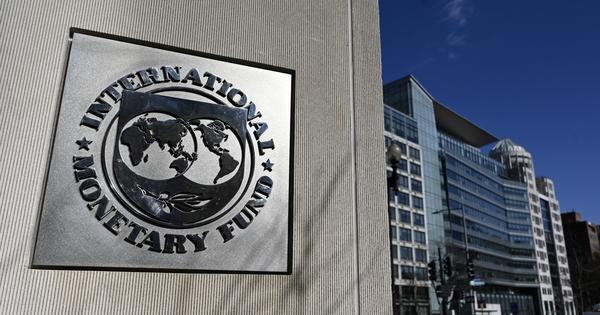
The International Monetary Fund has imposed 11 new conditions on Pakistan for the release of the next fund tranche as part of its bailout programme, The Express Tribune reported on Sunday.
This increased the number of conditions to 50.
In a staff-level report released on Saturday, the United Nations financial agency warned that “rising tensions between India and Pakistan, if sustained or deteriorate further, could heighten risks to the fiscal, external and reform goals of the programme”.
On May 9, the United Nations financial agency approved a fresh $1 billion financial assistance programme for Islamabad as part of its bailout package.
The conditions imposed by the IMF on Saturday included Islamabad having to secure parliamentary approval for a new $62.2 billion budget, implementing an increase in the debt servicing surcharge on electricity bills and lifting restrictions on the import of used cars that are older than three years, The Express Tribune reported.
The IMF imposed the new conditions in relation to lending worth $7 billion, the report added.
The condition of securing parliamentary approval of the 2025-’26 Budget “was in line with the IMF staff agreement to meet programme targets by the end of June”, the newspaper reported.
Another condition was that the Pakistani government must publish a governance action plan based on the recommendations of the IMF’s Governance Diagnostic Assessment, according to The Express Tribune.
The IMF report projected the country’s defence budget for the next fiscal year to be $8.5 billion, the newspaper reported. Islamabad, however, has indicated 18% higher allocation for defence after military tensions with New Delhi escalated earlier this month, The Express Tribune reported.
The tensions escalated on May 7 when the Indian military carried out strikes – codenamed Operation Sindoor – on what it claimed were terrorist camps in Pakistan and Pakistan-occupied Kashmir.
The strikes were in response to the terror attack in Jammu and Kashmir’s Pahalgam.
The Pakistan Army retaliated to Indian strikes by repeatedly shelling Indian villages along the Line of Control in Jammu and Kashmir. At least 22 Indian civilians and seven defence personnel were killed.
On May 10, India and Pakistan reached an “understanding” to halt firing following a four-day conflict.
Noting that the tensions between the two neighbouring countries had risen over the past two weeks, the IMF said that the market reaction, however, had been modest, with the Pakistani stock market retaining most of its recent gains, The Express Tribune reported.
On May 9, India raised concerns about the efficacy of IMF’s programmes for Pakistan “given its poor track record, and also on the possibility of misuse of debt financing funds for state-sponsored cross-border terrorism”.
On Friday, India’s Defence Minister Rajnath Singh said that any financial assistance provided by the International Monetary Fund to Pakistan is “no less than terror funding” and should be reconsidered.
Also read: Why India was unable to stop IMF’s $2.4 billion assistance to Pakistan amid escalating hostilities

